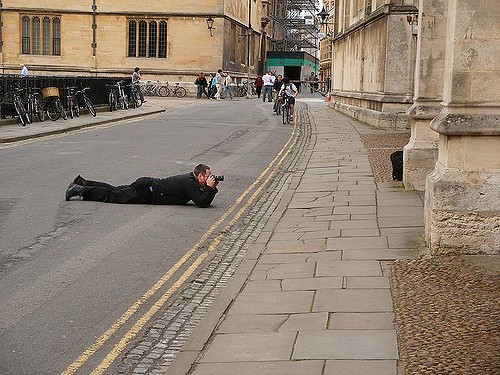
Improper Photography: Taking Pictures Without Consent
It’s safe to say that modern technology has made many people into amateur photographers. Whether they are snapping selfies or taking a video in a public place, nearly everyone has instant access to high-definition video and picture recording capabilities. The popularity of smartphones means that most people have a powerful camera in their pocket or in their hand at any time.
Texas Laws on Improper Photography
It’s safe to say that modern technology has made many people into amateur photographers. Whether they are snapping selfies or taking a video in a public place, nearly everyone has instant access to high-definition video and picture recording capabilities. The popularity of smartphones means that most people have a powerful camera in their pocket or in their hand at any time.
In most cases, this type of image recording is not a problem. However, when someone chooses to use this technology to take pictures of other people without consent, legal problems could arise. The Texas law regarding improper photography has changed recently, and legal cases could be directly affected by this change.
What Is Improper Photography?
Although most people have the ability to take a photo at nearly any time, they may not legally be allowed to do so in certain situations. The state of Texas has a law in place regarding when and where photos can be taken. Violating this law could lead to criminal charges.
Chapter 21.15 of the Texas Penal Code spells out the legal definition of improper photography. The law was changed recently to focus on “invasive visual recording” rather than strictly “improper photography”. This is because the improper photography law was determined to have the potential to violate the constitutional rights of people who made recordings in public.
The new law is much more specific in its focus. It criminalizes any visual recording which:
- Records a photo or video image of a person without that person’s consent and with the intent to invade that person’s privacy
- Records images of a person’s intimate areas when that person has a reasonable expectation of privacy
- Records a person in a changing room or bathroom
It is also illegal to promote or distribute images that have been taken in this way. The old law criminalized images that were taken without consent for the purpose of arousing or gratifying the sexual desire of any person. However, this wording is not very specific because it can be difficult to prove a person’s intentions when they take photographs.
The new law can be applied specifically to cases that involve a person who takes images of the breasts or genitals of another person when that person has a reasonable expectation of privacy.
The Issue of Privacy
One of the biggest issues in these types of cases is the matter of privacy. While some people might feel that they are always protected from invasions of privacy in all places, this is not necessarily the case. A person who is in a public location, such as a bus or a shopping mall, does not have a guaranteed right to privacy. This is because it would be very difficult to prosecute cases involving a person who was taking pictures in public. It can be difficult to prove the intent of a person who snaps a few photos in a public place.
However, if a person is in their own home, a changing room, or a bathroom, they have a legally valid expectation of privacy. In order for photos in these locations to be legal, the person being recorded would have to give express consent to the recordings. Without consent, these photos would be evidence of a criminal action.
Legal Penalties
A person who is found guilty of invasive visual recording can expect some severe penalties. Under the law, this crime is a state jail felony. This means that a person who is found guilty of this crime may face:
- 180 days or up to two years in state jail
- A fine of up to $10,000
Additionally, a person who violates this law may be banned from certain areas and may be placed on supervised probation.
Although the new law is much more specific, it can still be difficult to apply. The widespread usage of portable recording devices can make these cases very complex. For example, a defense attorney might argue that a defendant charged with invasive visual recording did not have the intent to violate privacy.
The attorney could argue that the defendant was taking pictures for an innocent purpose and did not intend to capture images of intimate areas. If intent cannot be proven by the prosecution, the charges might be dropped or reduced.
Are you being charged with improper photography or visual recording? You need an aggressive lawyer you can trust. Contact attorney Brett Podolsky today at 713-227-0087
